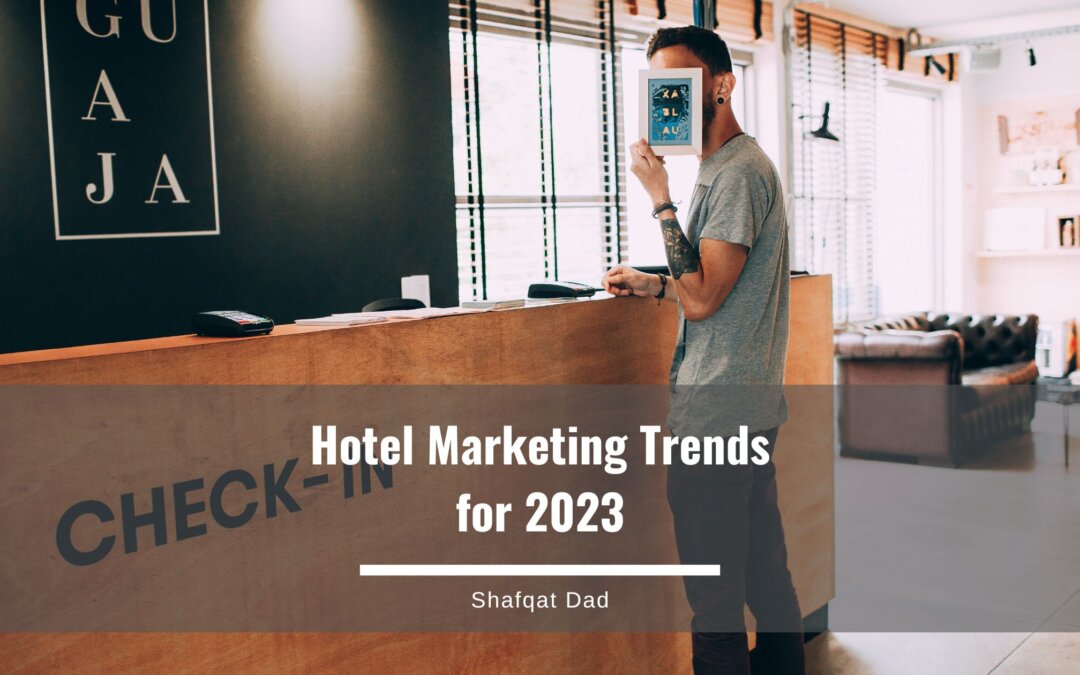The hospitality industry, always dynamic and evolving, has seen significant shifts in its marketing strategies as consumer behaviors and technological advancements continue to change. In 2023, several emerging trends are set to redefine how hotels attract and engage guests.
Historically, hotel marketing was mainly about prime locations, beautiful infrastructure, and exemplary service. Word of mouth and traditional media formed the backbone of promotional efforts. The rise of the digital age, especially in the last decade, brought a massive shift. With online bookings, reviews, and influencer endorsements, the game changed. Then, the global events of the early 2020s, primarily the pandemic, further transformed guest expectations and travel patterns, forcing the industry to adapt, innovate, and explore new frontiers in marketing.
Data-Driven Personalization
Data has become the cornerstone of modern hotel marketing. Hotels now have access to vast amounts of guest data, from booking preferences to on-site behavior. Using this data, hotels offer highly personalized online and offline experiences.
Digital touchpoints, like websites and apps, are being optimized in real-time to reflect individual user preferences. Offers, room choices, and content are tailored based on past behaviors and predictive analytics.
Offline, the guest experience is being transformed. Using data, hotels can anticipate guests’ favorite foods, leisure activities, or room preferences. By offering these personalized touches, from a preferred brand of chocolate waiting in the room to a customized itinerary, hotels can create memorable experiences, increasing loyalty and positive word-of-mouth.
Virtual and Augmented Reality
VR and AR have made significant inroads in hotel marketing. Potential guests can now take virtual tours of hotel properties, exploring rooms, amenities, and even surrounding locales. This immersive experience builds excitement and fosters trust as guests know precisely what to expect.
Furthermore, AR is enhancing the in-stay experience. Interactive AR maps guide guests through hotel properties, while AR menus provide detailed information about dishes, ingredients, and origins, making dining an enlightening experience. Some luxury hotels have also introduced AR-enhanced art installations, transforming their spaces into interactive galleries.
Sustainable and Eco-Friendly Initiatives
Sustainability is no longer a buzzword; it’s a commitment that guests expect. Hotels are increasingly marketing their eco-friendly initiatives, from solar power usage to zero-waste policies. But it’s not just about being environmentally conscious; it’s about incorporating sustainability into the guest experience.
Organic farm-to-table dining experiences, eco-friendly spa treatments using natural ingredients, and rooms designed with recycled or sustainable materials are all becoming the norm. Many hotels also offer guests the opportunity to partake in local conservation efforts, such as tree planting or beach clean-ups, making their stay a vacation and contributing to the planet.
The future of hotel marketing in 2023 is a blend of technological innovation, data-driven personal touches, and a genuine commitment to sustainability. As competition intensifies, those hotels that can effectively tap into these trends will undoubtedly stand out, offering guests a place to stay but an experience that resonates personally and globally. It’s an exciting era for the hospitality industry, where marketing strategies influence bookings and contribute to larger narratives of innovation, personal connection, and global responsibility.
